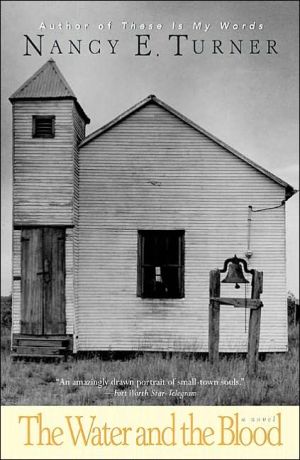

 |

|

The average rating for Water and the Blood: A Novel based on 2 reviews is 4 stars.
Review # 1 was written on 2017-09-15 00:00:00 Jun Igarashi Jun IgarashiI'm not sure what didn't click with me but reading this book felt more like a chore than a pleasure. I enjoy the time period as it's set during WWII, I enjoy learning about the evolution of race relations in the United States and feelings between whites and Indians in the mid-20th century is new territory for me. There's even a bit of a love story in the mix but my attention dragged and waned. I believe part of the problem lies with the fact that most of the characters are underdeveloped. Aside from the main character, Frosty, we aren't told enough about the motives behind their actions and feelings so they feel one-dimensional and don't garner much sympathy from me, one way or another. |
Review # 2 was written on 2019-12-30 00:00:00 Kurtis Ksiazek Kurtis KsiazekPerhaps my reasons for reading this book determined my expectations and my reaction. Despite some questions I may have about some details and plot choices, I found what I expected and many things that made me think about what it meant to grow up in pre-war East Texas, just a few miles from my own father's small town. He would have been only a few years younger than Frosty, and his older brother served in the army at the same time and place as Cody, Gordon, and others in the book. My father left East Texas to join the army in the Korean War, and never returned to live there. He married my mother and moved to an island in the farthest northwest corner of Washington state. He didn't miss the poverty, the narrow mindedness or the racism of East Texas, but they were bred into his bones. He never spoke much about it, but he was very aware that northerners were puzzlingly racist in ways that confused him. He didn't see any "colored people," anywhere on our island, and like most southerners, individual black people were not a threat, anyway. Indeed, with southern roots, they were often more comfortable for him, sharing a code of politeness and distance, much like the way the sheriff in this story was portrayed in relationship to the black community members. Frosty's family and friends, however, remind me of some of his stories that hinted of very different sorts of folk. I recall relatives in little shacks with outdoor plumbing, with sons who ran wild and daughters who married young, or ran off to the big city (probably Shreveport, Louisiana.) The family secrets, violence, controlling lies and accusations, and the oppressive and yet comforting religion also ring true to me. They are the hissing snakes of my nightmares. We visited East Texas when I was 14 years old, in 1964. A scary undertow to some relatives' conversation was about what kind of violence could erupt over the recent Civil Rights laws. Recently, I revisited the area to see my daughter and grandchildren who were temporarily living in a town 30 miles from my father's hometown. We drove along the Sabine River, and I was struck by the remoteness, though much has changed. In the book, Frosty attends high school. There was no high school in my father's hometown; most kids graduated 8th grade, and almost nobody took the bus to faraway Marshall to attend the only high school in the region. I appreciated this book. The attitudes of people in that time and place may not be perfectly portrayed but the backwardness, fear of others, and the choking need for any thoughtful person to leave it behind seem absolutely true. Frosty's and Gordon's romance and difficulties in establishing their relationship, given their many differences, was important to her eventually leaving that life behind and starting a new life according to their own hard-won independence from the past. Although we carry our past with us, we can learn from it and not repeat the same mistakes. My dad finished high school in the army, spent some time in Japan before coming back to his new wife and baby in Washington. He tried'not always successfully'but released from the fear of his childhood haunts, to overcome much of the racism and intolerance of that world. His attitudes were not worse than those of most northern liberals I've encountered. Compared to the violence of his upbringing, he felt himself to be positively lenient with us, largely because my mother disapproved of most corporal punishment. His relationship to church'that would be Baptist of the northern sort'was intense and rather hypocritical, but for the most part, our family found more kindness and freedom of thought at church than we would have, if left to my father's rigid religious views. For a book about a time and place I wanted to explore; about how a person with that background finds a way out and deals with the scars of her upbringing, this book was a great read. The author juggled many themes, characters, and plot elements very skillfully. I'm glad I read it. |
CAN'T FIND WHAT YOU'RE LOOKING FOR? CLICK HERE!!!